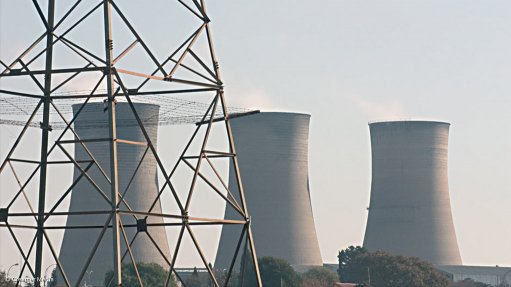
Photo by: Creamer Media
Mineral Resources and Energy Minister Gwede Mantashe says he expects the long-awaited update to the Integrated Resource Plan (IRP) to be considered for approval by Cabinet at its next meeting, scheduled for Wednesday September 18.
The IRP has not been updated since the IRP2010 was officially approved as the country’s generation roadmap in early 2011, despite two previous attempts to do so.
A draft update was published for public comment in August 2018 and, following a national road show, the then Department of Energy (DoE) received thousands of written and oral comments on the plan.
Parliament’s Portfolio Committee on Energy also hosted hearings on the IRP, which was subsequently updated by the DoE ahead of yet further consultation by the government, business, labour and community constituencies represented at the National Economic Development and Labour Council (Nedlac).
A protracted Nedlac process, which began in early 2019, then ensued, with labour and community representatives reportedly raising concerns over the exclusion of new nuclear, as well as the diminishing role of coal in the IRP.
The draft IRP, which covers the period 2019 to 2030, already included a policy adjustment to cater for two new coal-fired power stations, selected, but never procured, following a competitive bidding process in 2015. This, despite the fact that the inclusion of the new-coal plants resulted in a deviation from a least-cost outcome, which was further constrained by the inclusion of yearly deployment limits on solar and wind.
Adjustments were also made to cater for capacity arising from a proposed expansion to the Inga hydro power plant in the Democratic Republic of Congo (DRC), in line with a treaty signed between South Africa and the DRC.
In the main, though, the draft IRP proposes that the bulk of South Africa’s electricity demand to 2030 – including demand arising from the decommissioning of some of Eskom’s aged coal plants – be met through a combination of wind and solar photovoltaic generators, supported by flexible generators, such as gas. Such a mix, the plan concludes, represents the least-cost new-build solution for the country.
Mantashe reported on Friday that the latest version of the IRP had already been presented for consideration within various structures of the African National Congress and had since been sent to The Presidency for inclusion on the agenda of an upcoming Cabinet meeting.
“We are hoping to have it through [Cabinet] by Wednesday next week,” Mantashe said during a briefing in Pretoria.